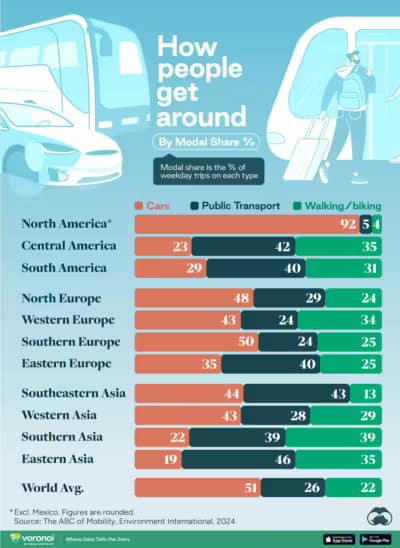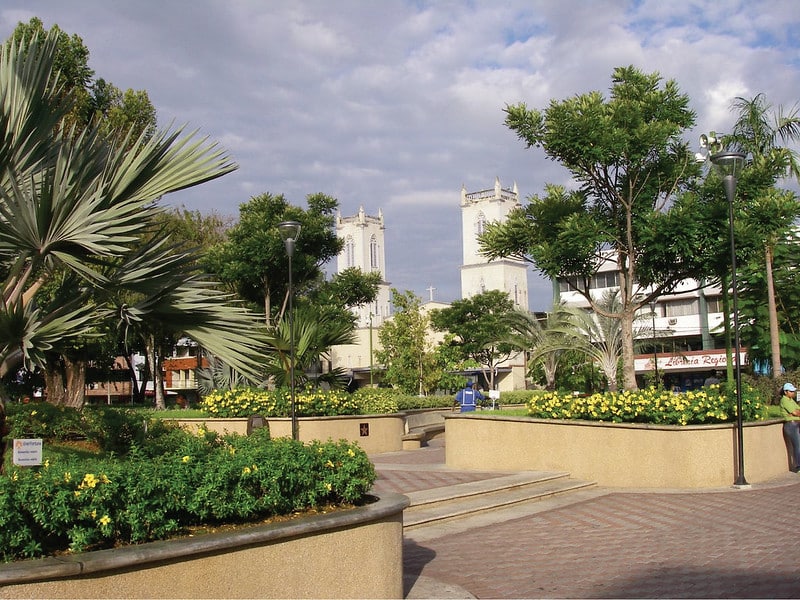Almost half of people who take the Expatsi Test say that they’re interested in moving abroad to save money. If you agree that the rent in the U.S. is too damn high, here are 10 ways to cut costs by becoming an immigrant.
- College. There are only two countries (Singapore and Australia) where the cost of a higher education is more than in the U.S. In fact, many countries offer free or low cost options, and some even have programs in English!
- Healthcare. Americans spend an average of $13,439 per capita on healthcare each year, a figure most people in the world can’t fathom. Whether you pay out of pocket, choose a local private insurance provider, or opt for public care, it’s hard to spend more than we do in the U.S. Use our expat healthcare planner to get info for specific countries. One example we learned recently on our scouting trip to Portugal: private assisted living is about $1,500 per month, compared to $5,500 in the U.S.
- Rent or mortgage. Housing prices have soared around the world over the past few years, but the baseline in many other countries doesn’t touch rates in the United States. Use sites like Idealista in Spain or Portugal or Inmuebles24 in Mexico to compare prices. (We have partners that can assist in those countries and more).
- Transportation. Make no mistake, gas is much cheaper in the U.S. than it is in most other countries. That said, driving is not nearly the necessity it is there. Many towns offer free or redced cost public transportation to residents.

- Taxes. To be honest, Brett and I are big fans of paying what we owe (even when we don’t like it), and we think that in many countries you get what you pay for. Nonetheless, if taxes are weighing you down, there are definitely countries that will incent you to live there with reduced or zero income tax, inheritance tax, property tax, corporate tax, or other incentives. Some of the most popular are Bermuda, United Arab Emirates, Monaco, the Bahamas, Panama, and Ireland.
- Food. The price of food varies a lot according to your tastes, your shopping savvy, and the country you move to. When we first moved to Mexico, we spent too much by buying imported goods or shopping at pricier stores. Once I learned my way around, I was able to find great butcher stores and mercados with higher quality goods at lower prices. I also expanded my cooking repertoire to use more local ingredients. In some countries, like Spain and Portugal, both groceries and dining out are much lower than what you’re used to in the U.S., regardless of where you shop.
- Services. It’s not just healthcare—other services are also priced much less in other countries, as the wages and cost of living are lower. This applies to services like home and car repair, vet care, and language tutoring, but my favorite is beauty services. I love being able to have my hair dyed professionally and get manicures, pedicures, and eyelash extensions. It’s a big quality of life improvement for me that also allows me to support small, local businesses.
- Entertainment. One thing we love about Mérida is all the vibrant, free cultural events like Noche Mexicana and the Mayan Pok ta Pok games. Brett is also a huge movie buff, and there are a number of luxury theaters in the area. Regular tickets are about $4, and VIP tickets with fully lie-down seats and table service cost about $10. In the European cities we visit, you can’t keep up with all of the public festivals, street markets, and fairs!
- Exchange rate. Now, this is one that can definitely go both ways, but if you’re able to be smart about when you exchange money, you can benefit tremendously from favorable exchange rates. As an example, when we first moved to Mexico, our rent was the equivalent of $1,550 USD. Just three months later, the equivalent was $1,250! By exchanging as much as we could when the dollar was stronger against the peso, we were able to benefit from the exchange rate for as long as possible. We use Wise to make our transfers, which also let us make payments in a variety of currencies.
- Less consumerism. I think this is the biggest opportunity to reduce your cost of living. Certainly, people in every country spend money on product they don’t need, but I do think the U.S. does it on steroids. If you have a smaller (or no) car, a smaller house, and a more meaningful life, there’s naturally less impetus to fill it with retail therapy.
Some tools you can use to compare apples to apples for rent, utilities, food, and other expenses are Expatistan and Numbeo. Please be mindful that a lower cost of living to you may not be a lower cost of living for locals, but also be aware that your spending lifts opportunities for everyone (despite what you might read online). Respect locals by living in the home you buy or rent, buying local, and paying required taxes.






